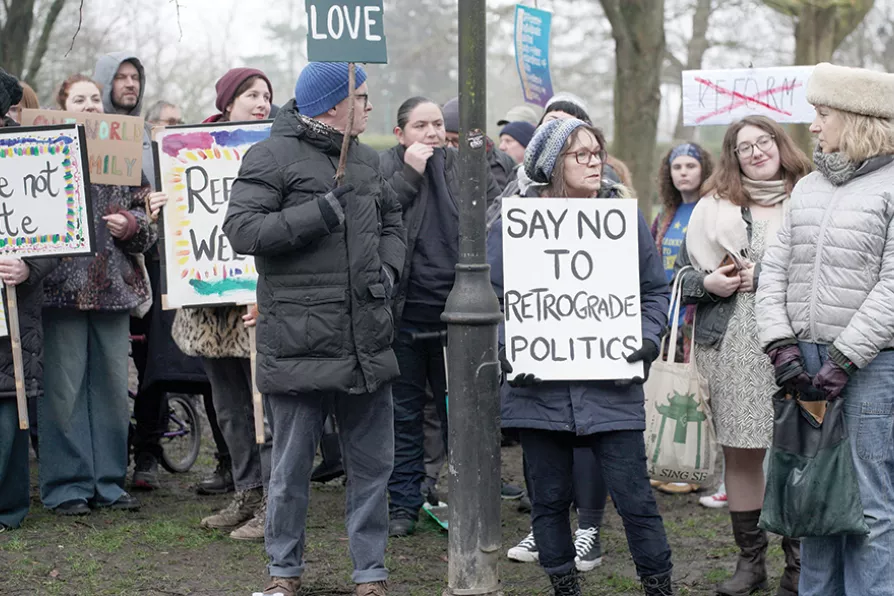Does widespread and uncontrolled use of AI change our relationship with scientific meaning? Or with each other? ask ROX MIDDLETON, LIAM SHAW and MIRIAM GAUNTLETT

 PUBLIC SNUB: People protesters outside the Reform UK Wiltshire conference at The Civic Trowbridge, in Trowbridge, Wiltshire on February 9 2025
PUBLIC SNUB: People protesters outside the Reform UK Wiltshire conference at The Civic Trowbridge, in Trowbridge, Wiltshire on February 9 2025
LAST YEAR was a significant year for anti-racists worldwide. Far-right populist parties came to the fore in most European nations, were re-elected in India, elected in South America and of course having taken over the US Republican Party saw their candidate elected in Donald Trump.
All these trends have a common theme. Free-market capitalism, anti-worker and anti-democracy. That’s not to say there won’t be major disagreements as shown by the current trade disputes, but the trends remain there.
Last year should not have been a surprise. Far-right parties and candidates had been building support electorally and via a myriad of influencers. Channels such as GB News — most recently rightly called out for an anti-semitic broadcast — and blogs regularly spin narratives scapegoating migrants. Influencers like the Tates have millions of followers.

CLAUDIA WEBBE argues that Labour gains nothing from its adoption of right-wing stances on immigration, and seems instead to be deliberately paving the way for the far right to become an established force in British politics, as it has already in Europe

Listening to our own communities and organising within them holds the key to stopping the advance of Reform UK and other far-right initiatives, posits TONY CONWAY











